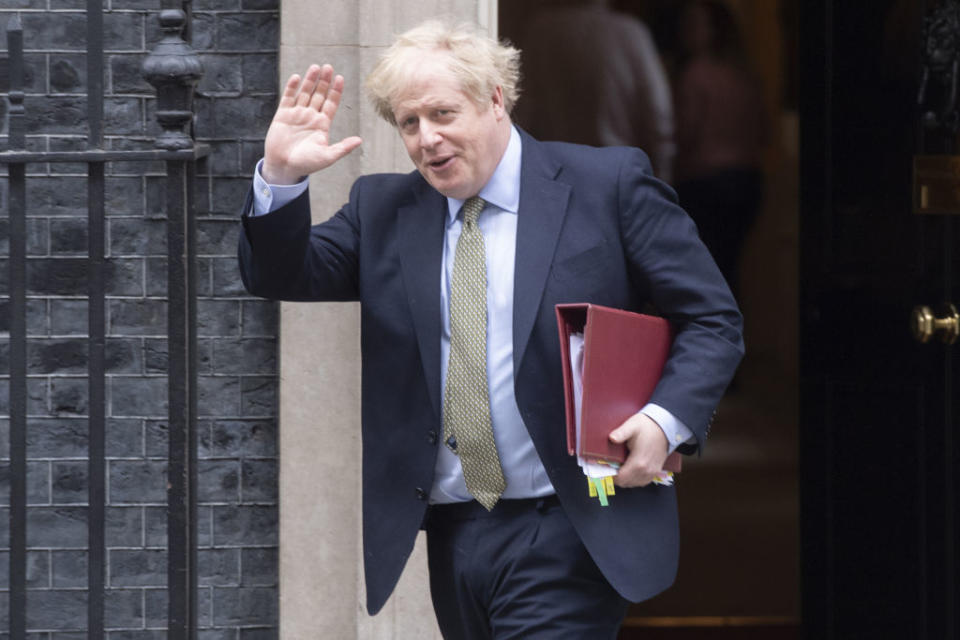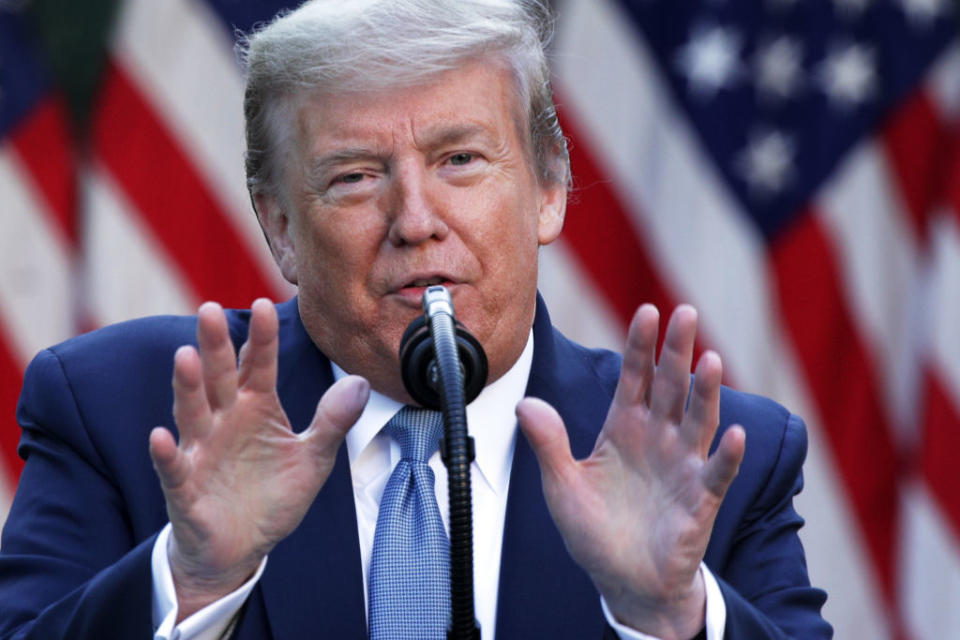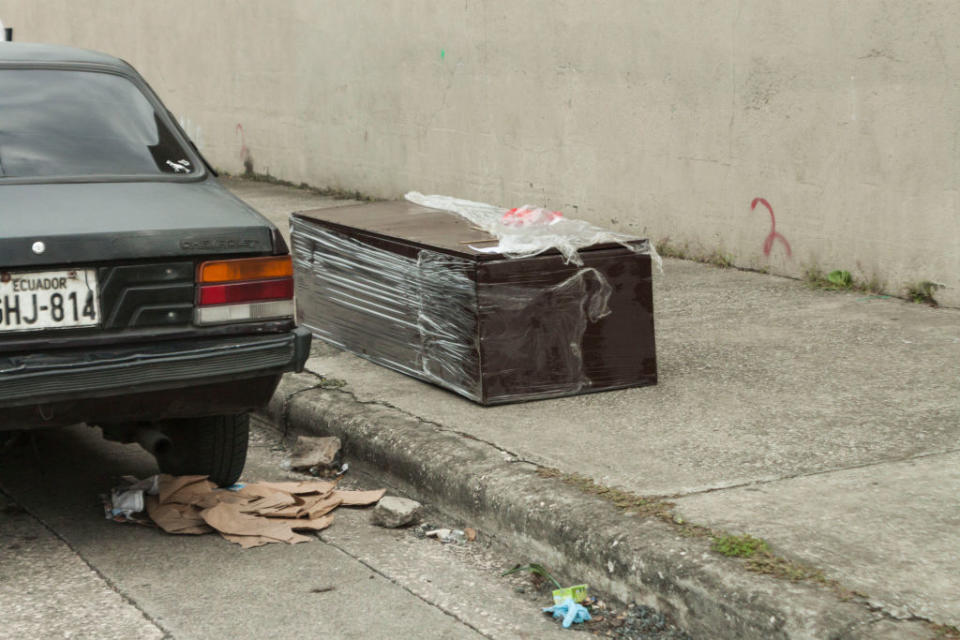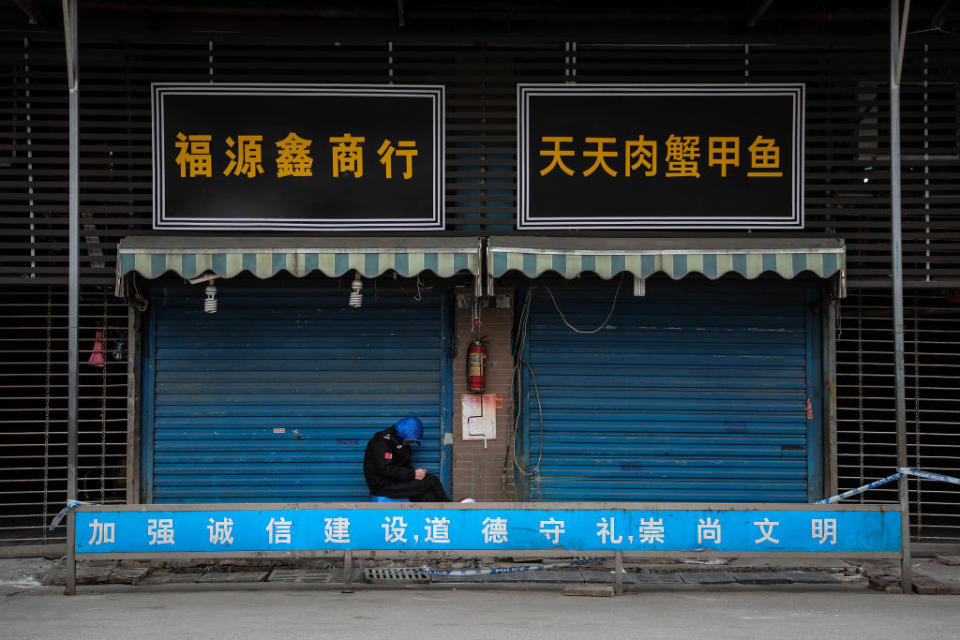The lockdown mistakes that have cost countries thousands of lives
The novel coronavirus, which is believed to have been spread from a wet market in China before causing global devastation, has gripped the world as many suffer and hundreds of thousands die.
There are now more than two million cases of the deadly virus – which causes respiratory illness and symptoms such as a fever, cough and difficulty breathing in more severe infections – and more than 130,000 deaths worldwide.
In New York alone there have been more than 8,000 deaths, nearly three times the number of victims of the 9/11 attacks in 2001.

The US has become the epicentre of the virus, surpassing the number of deaths in China and even Italy where the virus has gripped one of the world’s art and history capitals, killing more than 21,000.
As the virus took hold of the globe, medical and world leaders alike were in uncharted territory when it came to how to flatten the curve and reduce the spread of the virus.
But some countries made mistakes that led to the death of thousands, with the severity of the virus brushed off until it was too late.
Here’s where some of the worst hit countries went wrong.
Italy’s affectionate culture risks spread
According to The Conversation, there are five main reasons why Italy was one of the hardest hit by the coronavirus.
With social distancing of at least 1.5 metres necessary to reduce the spread of the infection, it isn’t a practise that sits well with Italy’s affectionate culture.
With hugs and cheek-kisses common as greetings not just among family members, but also friends and colleagues, the virus is likely to be spread at a much faster rate.
There was one mishap however, that did lead to the coronavirus spreading far and wide through the country.
In March, Prime Minister Giuseppe Conte signed a decree that would plunge 16 million Italians in the nation’s north into quarantine for about a month.

However, there was chaos and confusion hours before Conte signed the decree, as word leaked that the government was planning the quarantine.
Italians scurried from packed bars and restaurants, swapping dinners and drinks for masks and suitcases as they shoved their way onto trains in a race against time to avoid the lockdown.
This act further risked the spread of the coronavirus rather than containing it to one particular area.
UK criticised for government’s initial reluctance
Before Prime Minister Boris Johnson tested positive for COVID-19, the leader was criticised by opponents for his conservative government’s initial reluctance to impose tough restrictions on movement and the economy to try to stem the spread of the virus.
In early March, Johnson recounted shaking hands with medics treating coronavirus patients at a hospital and said: “I continue to shake hands”.
The government’s initial advice was that people should wash their hands frequently.
According to The Guardian, many Britons were still attending major sporting events early last month, with the culture secretary Oliver Dowden saying there was “no reason” to direct sporting events to be played behind closed doors, despite countries like France and Greece already taking those steps.
The organisers of the Cheltenham racing festival were also slammed by legendary jockey AP McCoy for staging the iconic event at the early stages of the coronavirus.
Pictures show thousands of people packed into the Cheltenham racecourse shoulder to shoulder on March 13.

Early on, the UK had a focus on herd immunity – a situation in which a sufficient proportion of a population is immune to an infectious disease to make its spread from person to person unlikely.
The nation appeared to be forging its own path with a strategy to fight COVID-19 in early March that was far more reliant on herd immunity than other countries.
The British government's chief scientific adviser, Patrick Vallance, went on BBC radio and told the country one of “the key things we need to do” is to “build up some kind of herd immunity so more people are immune to this disease and we reduce the transmission”.

The idea that the UK was embracing herd immunity caused widespread concern among the public and scientific community with epidemiologist William Hanage, from the Harvard's Chan School of Public Health, saying he thought it was a joke when he heard about the apparent plan.
As the number of cases soared, that escalated to include the closure of schools, restaurants and non-essential shops and a nationwide order for everyone but key workers to stay home.
There are currently more than 12,000 deaths in the UK.
America ‘has it under control’
By the time President Donald Trump first spoke publicly about the coronavirus, it may already have been too late.
Interviewed at Davos, at a gathering of global elites in the Swiss Alps, the president on January 22 played down the threat posed by the respiratory virus from China, which had just reached American shores in the form of a solitary patient in Washington state.
“We have it totally under control,” Trump said on CNBC.
“It’s one person coming in from China, and we have it under control. It’s going to be just fine.”
In the 11 weeks since that interview, the coronavirus has reached every corner of the globe.

It has rewritten the rules of society, isolated people in their homes, closed schools, devastated the economy and put millions out of work.
There have been more than 30,000 deaths in the US.
New York City counts for a third of total coronavirus deaths in the US and there are concerns officials underestimated the risk.
On March 2, as New York state's second case was confirmed in New Rochelle, just north of New York City, Governor Andrew Cuomo said they did not think it was going to be as bad as it was in other countries. He was wrong.
It wasn’t until March 16 and after much hesitation that New York City Mayor Bill de Blasio closed public schools, bars and restaurants.
The governor then announced all non-essential businesses would close and on March 22 said residents had to stay home.
But there has been debate over whether the actions were too little too late.
“The mayor and the governor were being pushed and pulled by two opposing forces,” Irwin Redlener, public health professor and expert in disaster preparedness at Columbia University, said.
"One was saying we have to close schools and restaurants as quickly as possible, the other saying there were lots of economic and social consequences of shutting down everything early.
"Everyone was getting mixed messages, including from the federal government, from (President Donald) Trump.”
Ecuador ‘unprepared’ for coronavirus onslaught
Ecuador's economic capital Guayaquil is reeling from the most aggressive outbreak of COVID-19 in Latin America after the pandemic hit the city "like a bomb".
Mayor Cynthia Viteri has emerged from her own bout with the virus to battle the worst crisis the port city of nearly three million people has known in modern times.
"There is no space for either the living or the dead. That's how severe the pandemic is in Guayaquil," Viteri told AFP in a phone interview Monday.
The 54-year-old mayor admitted the city was "unprepared" for the onslaught.
"Nobody believed that what we saw in Wuhan, people falling dead in the streets, would ever happen here,” she said.
Authorities now predict the city will have a death toll of more than 3,500 in the coming months. The capital has been especially vulnerable due its air links to Europe.

The first case of infection – Ecuador's "patient zero" – was an elderly Ecuadoran woman who arrived from Spain in February.
"This is where the bomb exploded, this is where patient zero arrived, and since it was vacation time, people travelled abroad, some to Europe or the United States, and our people who lived in Europe came here," Viteri said.
"And when they arrived there were no controls like they should have been if we had known that this was already coming by air. And the city of Guayaquil simply convulsed."
Too late, the city went into lockdown as authorities imposed a 15-hour curfew and bodies began to accumulate in homes, and even on the streets.
France ignores social distancing practises
Despite the French government urging its citizens to practise social distancing of 1.5 metres or more, many still flocked to public spaces in groups which prompted authorities to crack down.
“Some consider they’re little heroes when they break the rules,” French Interior Minister Christophe Castaner said last month.
“Well, no. You’re an imbecile, and especially a threat to yourself.”
After days of non-compliance by people refusing to stay home and venture out only for essential tasks, France sent security forces into train stations to prevent people from travelling to their vacation homes, potentially carrying the virus to the countryside or beaches where medical facilities are less robust.

The popular Paris walkway along the Seine River was closed and a nightly curfew was imposed in the French Mediterranean city of Nice by Mayor Christian Estrosi, who was infected with the virus.
In France there are more than 17,000 deaths.
Sweden ‘paying heavy price’ for approach to pandemic
Crowds swarm Stockholm’s waterfront, with some people sipping cocktails in the sun. In much of the world, this sort of gathering would be frowned upon or even banned.
Not in Sweden.
It doesn’t worry Anders Tegnell, the country’s chief epidemiologist and top strategist in the fight against the coronavirus pandemic.
The 63-year-old has become a household name in Sweden, appearing across the media and holding daily briefings outlining the progression of the outbreak with a precise, quiet demeanour.
As countries across Europe have restricted the movement of their citizens, Sweden stands out for what Tegnell calls a “low-scale” approach that “is much more sustainable” over a longer period.
US President Donald Trump has suggested that a rising number of COVID-19 deaths indicate Sweden is paying a heavy price for embracing the idea of herd immunity — that is, letting many individuals get sick to build up immunity in the population.

“Sweden did that – the herd. They called (it) the herd. Sweden is suffering very, very badly. It’s a way of doing it,” Trump said.
Tegnell insists that Sweden’s approach still seems to make sense, though he also acknowledges that the world is in uncharted territory with the virus.
He argues that while Sweden might have more infections in the short term, it will not face the risk of a huge infection spike that Denmark might face if it lifts its lockdown.
The Swedish government has not enforced mandatory rules and instead said it was up to the people to be responsible and follow social distancing guidelines.
There are currently more than 1,200 deaths in Sweden.
China reports ‘mysterious pneumonia outbreak’
On New Year’s Eve, China informed the World Health Organisation of a “mysterious pneumonia outbreak” spreading through Wuhan, an industrial city of 11 million.
The government closed a seafood market at the centre of the outbreak, moved all patients with the virus to a specially designated hospital and collected test samples to send to government laboratories.
Doctors were told to stay quiet; one who issued a warning online was punished. He later died of the virus.

Outrage was rife in China in February following the death of the coronavirus whistleblower who tried to alert others of the imminent threat before it became a global crisis.
Li Wenliang was one of eight young doctors who attempted to spread awareness on a “SARS-like” virus last year, but was condemned and censored for doing so, CNN reported.
Dr Li was accused of spreading “rumours” about the major health threat, and only spoke out to warn his peers to protect themselves, he told CNN.
On February 1, he confirmed he had tested positive for the virus and just days later he was dead.
With AP and AFP
Do you have a story tip? Email: newsroomau@yahoonews.com.
You can also follow us on Facebook, Instagram and Twitter and download the Yahoo News app from the App Store or Google Play.





